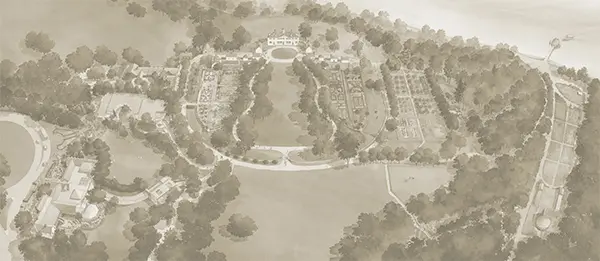This perennial herb is primarily grown for its flavorful leaves, which are used in salads, soups, and cold drinks. Its flavor is reminiscent of cucumbers, and it may be substituted for mint in many recipes.
Latin Name
Sanguisorba minor
Family
Rosaceae
Also Known As
Garden Burnet
Type of Plant
Bloom Season
July
Seasons
Specifications
Uses
Sunlight Exposure
Tolerances
Colors
Native Range
Europe, northern Africa, Asia, Canary Islands
History
Thomas Jefferson planted salad burnet in his gardens many times, beginning in 1778.
Planted at Mount Vernon


Hardiness Zones












Average annual extreme minimum temperature 1976-2005











Bartlett Tree Expert Company has been working with Mount Vernon Estate since 2011 providing expert arboricultural care and GPS mapping for the estate’s historic trees, as well as support from their research facility. Mount Vernon is proud to partner with Bartlett Tree Experts and appreciates their sponsorship of George Washington’s Mount Vernon Plant Finder App.
Bring Washington's Garden Home
Purchase our historic seeds, collected from plants grown at Mount Vernon and plant them in your own garden.
Shop Now
